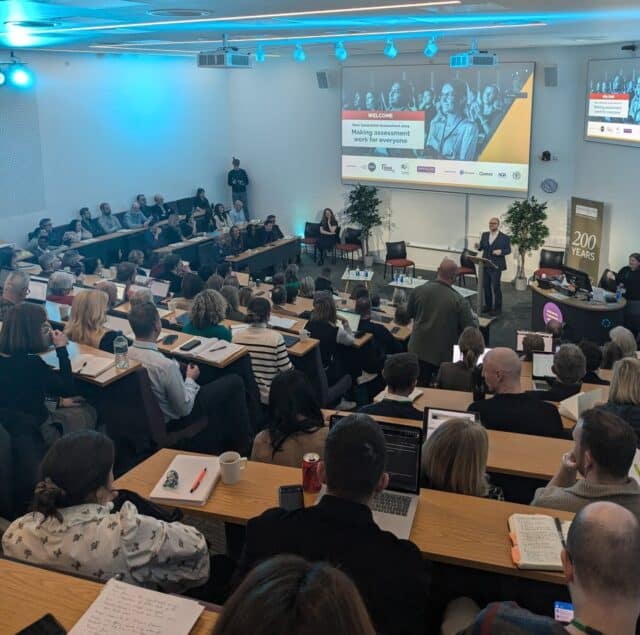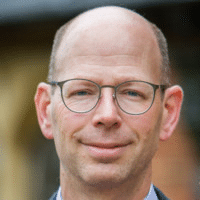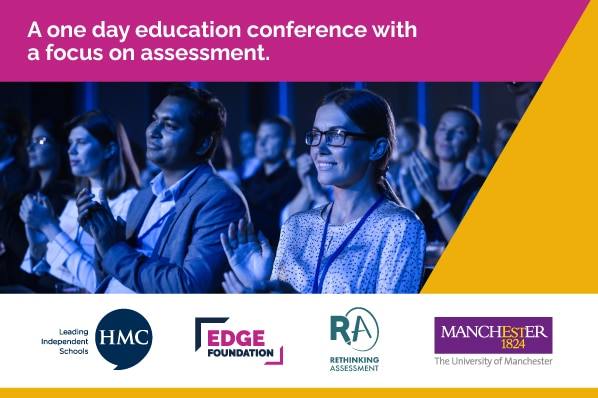Blog
Reflection on Next Generation Assessment 2025

Olly Newton
Executive Director, Edge Foundation
Read the blog
The Next Generation Assessment 2025 Conference held at the Allied Manchester Business School sold out within hours for the third year running! This time the critical human elements in education reform rose to the surface. Discussions underscored the need to place educators at the heart of curriculum design, ensuring they are both engaged and continually developing their skills. By giving teachers ownership, we not only empower them but also create a workforce that is adaptable and prepared for the future.

AI has cemented itself in education, presenting both opportunities and challenges
The key takeaway is that while AI can enhance learning, it should not replace the essential human elements of education—critical thinking, creativity, and emotional intelligence. We must be deliberate in determining what AI should handle and what must remain within human control. Thoughtful integration is necessary to ensure that AI supports rather than dictates education.
Education must be individualised, helping students see their place within the broader system
Rather than imposing a rigid structure, we should cultivate an environment that nurtures imagination and real-world application. A striking analogy was drawn between maths education and football training—where current methods focus too much on drills rather than allowing students to ‘play the match’ and engage with real-world problem-solving.
Addressing Inequities and Valuing What Matters
The event brought attention to stress inequity and skills inequity—factors that disproportionately affect students and teachers. The phrase “measure what you treasure” resonated throughout, emphasising that assessments should align with what truly matters in learning, rather than being constrained by outdated metrics.
Actionable Steps for Change
To drive immediate change, several strategies were proposed:
- Parent Education: Engaging parents in discussions about alternative qualifications such as the EPQ (Extended Project Qualification) and HPQ (Higher Project Qualification) is essential. Presentation evenings, open days, and clear comparisons with traditional qualifications can help shift perspectives.
- Expanding Student Choice: While offering more pathways is beneficial, we must critically assess whether these choices are genuinely for students or shaped by parental expectations.
- School-Directed Courses: By developing flexible content and pathways, schools can cater to diverse learning needs while ensuring meaningful engagement.
- Infrastructure Readiness: New schools must be designed for inclusivity, with digital integration and adaptive learning environments that support all students.
- Digital Learner Profiles: These can provide personalised insights into student progress and potential, ensuring that education is tailored rather than one-size-fits-all.
The Future of Education: Balancing Innovation and Ethics
The discussion on digital dystopia raised crucial concerns about learning analytics—who owns the data and how it is used. This led to broader reflections on the purpose of school. It is not simply about imparting knowledge or skills but rather fostering a holistic educational experience that balances both.
Looking ahead, there is hope that this movement towards progressive assessment and curriculum design continues to thrive. Education should shift from merely shaping students to enabling them to formulate and explore nuanced questions. The role of the CAR (Curriculum, Assessment, Review) framework will be pivotal in recognising what truly matters and creating meaningful pathways for students.
Moreover, the importance of place-based learning and fostering a connected learning ecosystem was highlighted. We must give the green light to innovation in digital education while ensuring that the human element remains at its core. Bringing together different disciplines through project-based qualifications and vocational education will help bridge gaps and create a more inclusive and effective system.
Final Thoughts
Kate Robinson’s words, “We all have the capacity to imagine something different,” serve as a call to action. We must continue to reimagine education beyond traditional constraints. Bill Lucas reminded us that “if curiosity is the oxygen of learning, feedback is the oxygen of assessment.” Authentic, meaningful assessment must fuel learning rather than restrict it. Finally, Sammy Wright’s observation that universal education systems often suppress rather than uplift must not be ignored. We must challenge and reshape these systems to serve all learners equitably.
This event reinforced the urgent need for a human-centred approach to education—one that values teachers, prioritises students, and embraces innovation while staying grounded in purpose. The future of education depends on our willingness to make thoughtful, courageous changes today.


